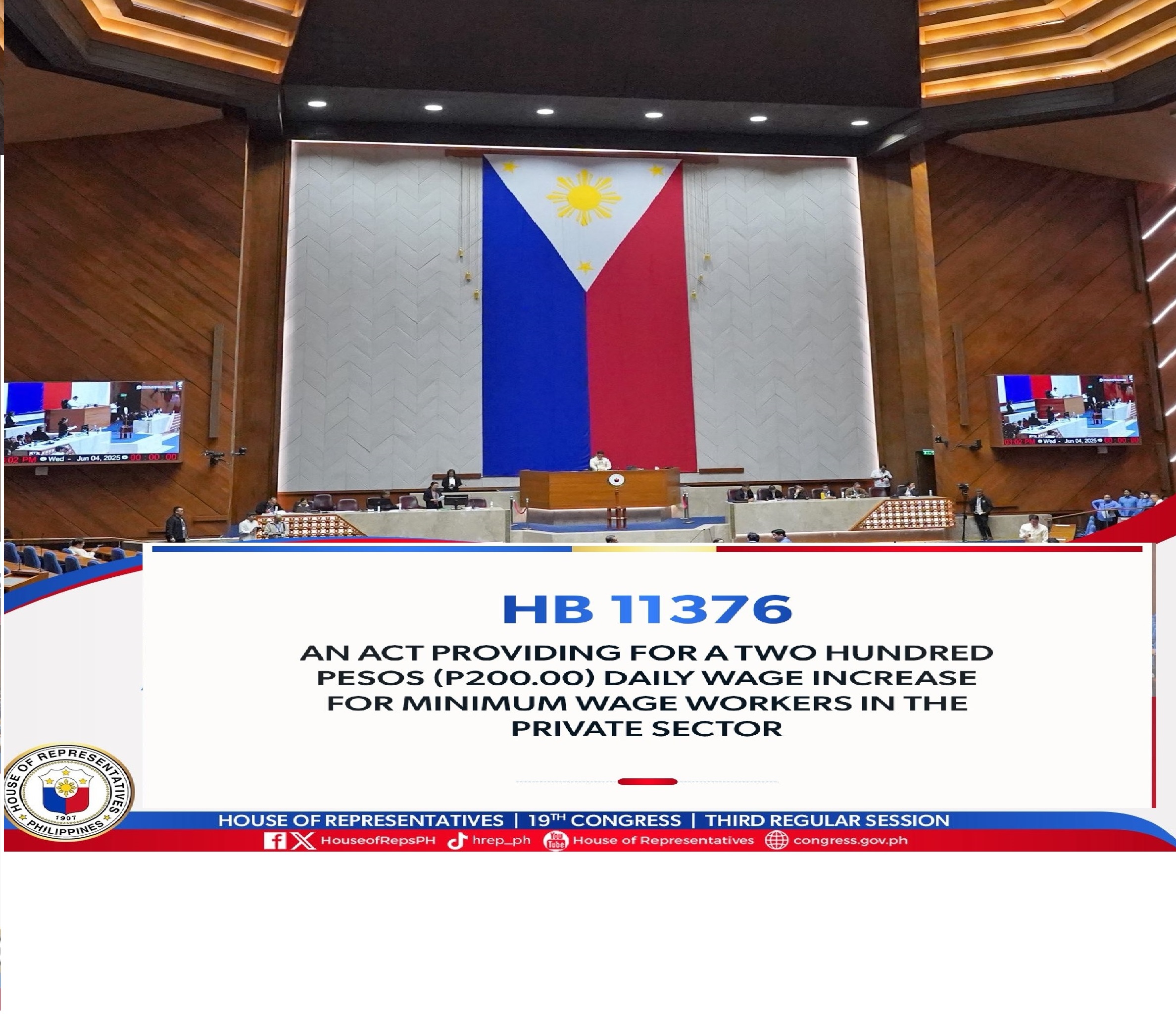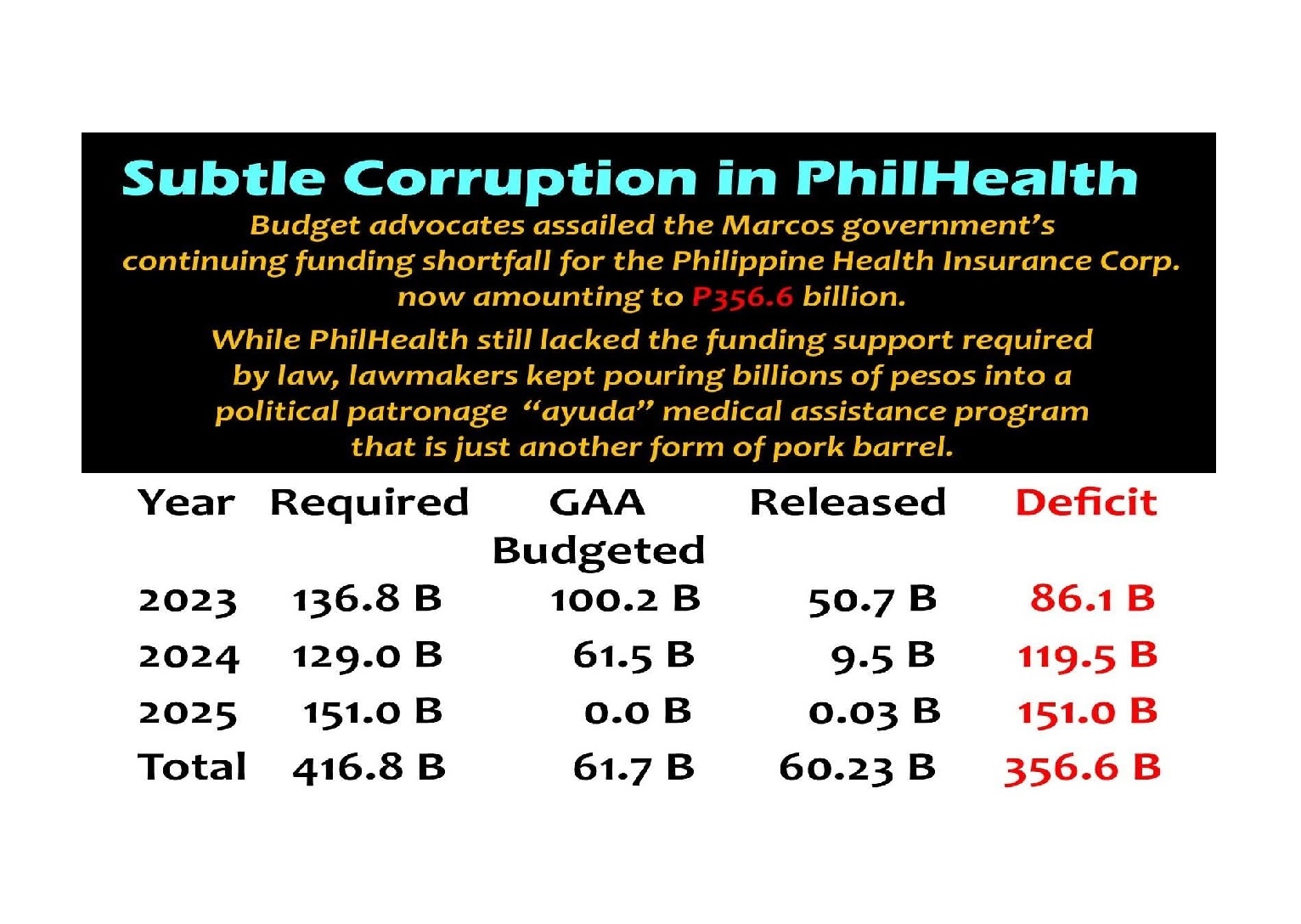Why the Philippines’ Wage Hike Risks Killing Businesses, Jobs, and Hope

In a country struggling to regain its economic footing post-pandemic, the Philippine House of Representatives has chosen the most politically convenient — and economically reckless — way to address poverty: a blanket ₱200 daily legislated wage increase for all minimum wage earners in the private sector. With 171 lawmakers voting in favor, one would think they had just solved the problem of working-class poverty. But what they have done instead is threaten to annihilate the very foundation of the economy: local businesses and the jobs they provide.
Let us be clear. No one questions the need to raise wages in a country where the cost of living far outpaces take-home pay. In Metro Manila, the minimum wage sits at ₱645 a day — a far cry from the ₱1,225 family living wage estimated by research institutions. Filipino workers deserve better. But they also deserve a solution that doesn’t backfire catastrophically.
This legislated hike — bypassing the deliberations of regional wage boards and imposing a one-size-fits-all mandate — is a policy sledgehammer aimed directly at the lifeblood of the economy: Micro, Small, and Medium Enterprises (MSMEs). These enterprises make up 99.63% of all businesses and employ nearly 67% of the workforce. And now, thanks to this bill, many of them are staring at a death sentence.
A small eatery in Cagayan de Oro or a tailoring shop in Zamboanga simply cannot absorb an additional ₱4,400 per month per worker. The consequence? Layoffs. Closures. Jobs will disappear overnight. And not just any jobs — the very few that remain in the country. This bill will kill local businesses and destroy what little economic opportunity exists in countless towns and cities across the Philippines.
In fact, the law could accelerate a retreat into the informal economy. With compliance costs surging and enforcement weak, some businesses will opt to stay off the books entirely. The result? Workers may end up losing their formal protections, health coverage, and social security benefits — the very things that distinguish decent work from bare survival.
Worse, the measure sets in motion a wage-price spiral that will devour its intended benefit. As labor costs surge, businesses will hike prices to survive. This fuels inflation, eroding purchasing power and sparking more wage demands. The cycle repeats — wages and prices chasing each other upward with no increase in productivity to justify it. The result? Stagflation: an economy simultaneously gasping for growth while drowning in inflation. This is not just poor economics — it’s dangerous policy.
And what happens when businesses die and jobs vanish? Filipinos will do what they’ve always done when their country fails them — leave. When people can no longer find decent work at home, they go abroad, as OFWs or permanent migrants, swelling the already massive Filipino diaspora. This bill, far from uplifting the working class, may accelerate the exodus of our workforce — not because they want to leave, but because they are left with no choice.
Who pays the price? Not the well-fed lawmakers who signed off on the bill with barely a single dissenting vote. The real casualties will be the country’s millions of workers employed by MSMEs — the sari-sari store owners, the market vendors, the tricycle operators, the factory helpers — those who will be first to lose everything. These small enterprises are already crippled by high electricity costs, red tape, and lack of credit. A wage hike of this magnitude — legislated without any safety nets — will be the final nail in the coffin.
Let’s be blunt: this bill is not about economic empowerment. It’s about political theater. Legislators want to look like heroes heading into the next election cycle, even if it means burning down the economy to get a standing ovation. They claim this is for the workers, but their actions are setting those same workers up for unemployment, hardship, and forced migration.
Do they not understand the message this sends to foreign firms? That the Philippines is a place where labor costs can be arbitrarily dictated by congressional fiat, not by market realities or productivity? This bill will not just repel future investors — it may drive out those who are already here.
Other ASEAN countries know better. Vietnam and Indonesia calibrate wage adjustments carefully, with attention to inflation targets, business capacity, and competitiveness. Even Thailand — which recently legislated a wage hike — faced backlash from its business sector and is now rethinking its timeline to avoid damaging investor confidence. Yet here we are, doubling down on a policy that offers short-term applause at the cost of long-term economic ruin.
A Real Solution: Reform, Not Ruin
If we truly want higher wages and dignified work, the solution is not blunt legislation. It is bold, systemic reform that expands the economy and creates more jobs for everyone — not just those lucky enough to be employed today.
First, reform the economy to unleash job creation.
Cut red tape. Improve infrastructure. Lower logistics costs. Expand power supply and reduce electricity rates. Make it easier for local businesses to scale and for foreign investors to build factories outside Metro Manila. Support MSMEs through credit guarantees, tax relief, and training — not through suffocating mandates.
Second, reform labor and education systems.
Raise wages by raising productivity. Invest in upskilling programs. Align education with labor market needs. Provide incentives for formalization so that informal workers — who are left out of wage laws anyway — can enter the safety and dignity of the formal economy.
Third, reform political governance.
End pork-barrel politics. Prioritize infrastructure over patronage. Professionalize local governance so investments can reach provinces, not just cities. Restore the integrity of policymaking by grounding it in data and consultation — not populist shortcuts.
And fourth, reform the bureaucracy.
Streamline business registration. Enforce contracts. Fight corruption. Investors will come if they are treated fairly and predictably. So will jobs.
If these reforms are made, businesses will grow. Jobs will be created. Wages will rise — sustainably and without igniting inflation. We will no longer need to export our workers by the millions. We can build a country they can be proud to stay in.
Wage legislation is easy politics. Economic transformation is hard.
But if lawmakers truly care about workers, they must stop choosing applause over impact. Otherwise, this ₱200 wage hike may one day be remembered not as a lifeline, but as a national tragedy — the day Congress chose grandstanding over growth and drove the final wedge between the Filipino worker and their hope for a future at home.





